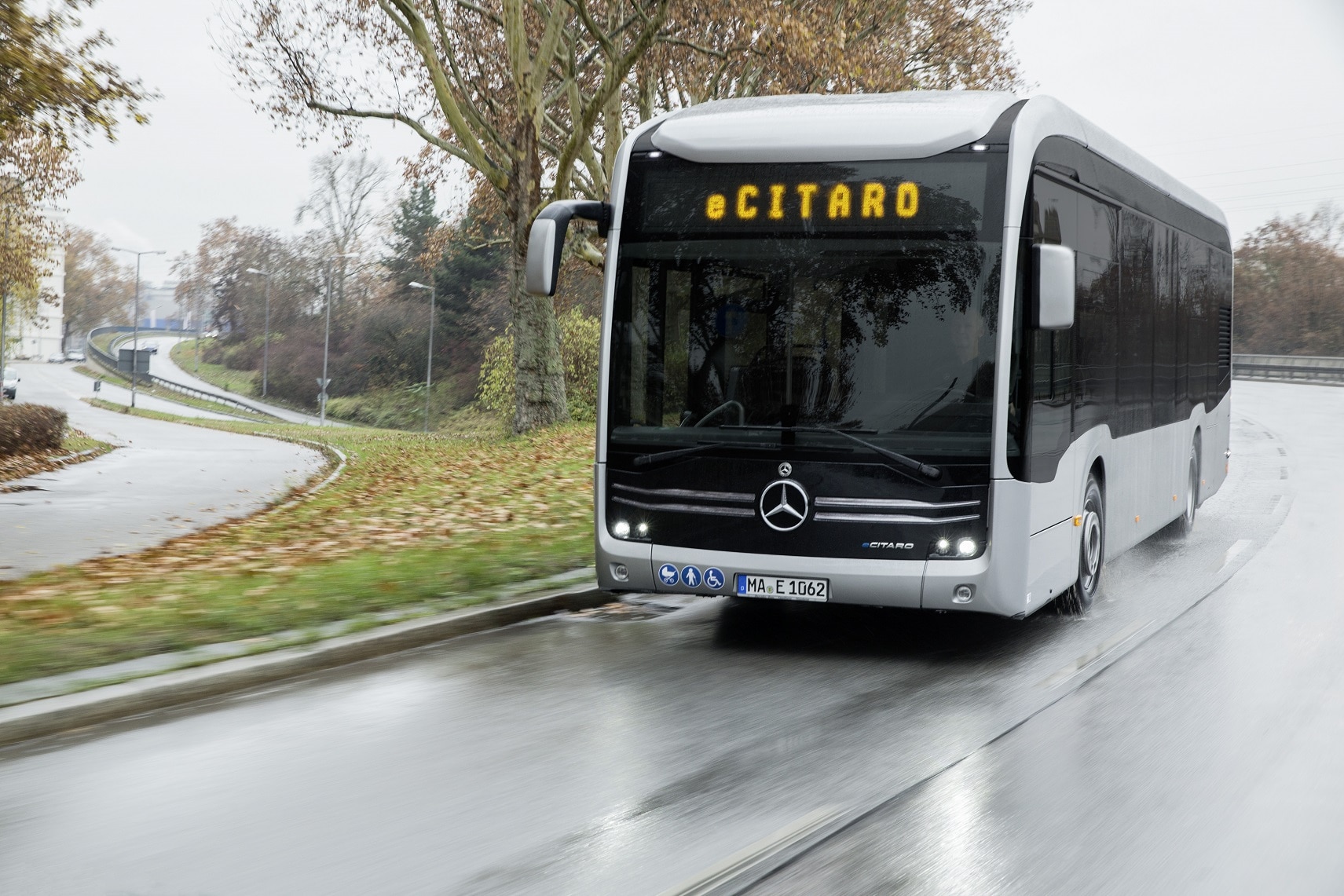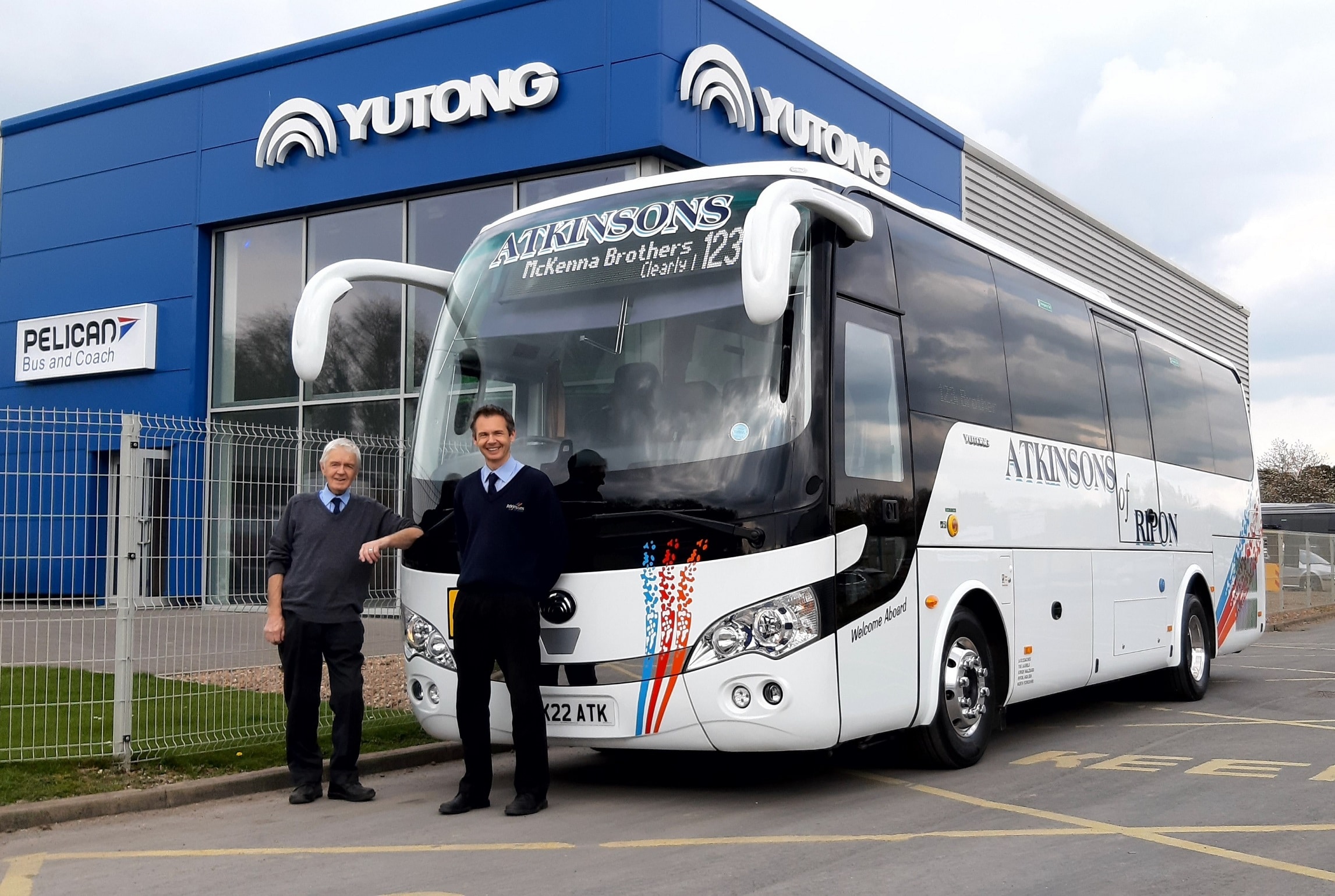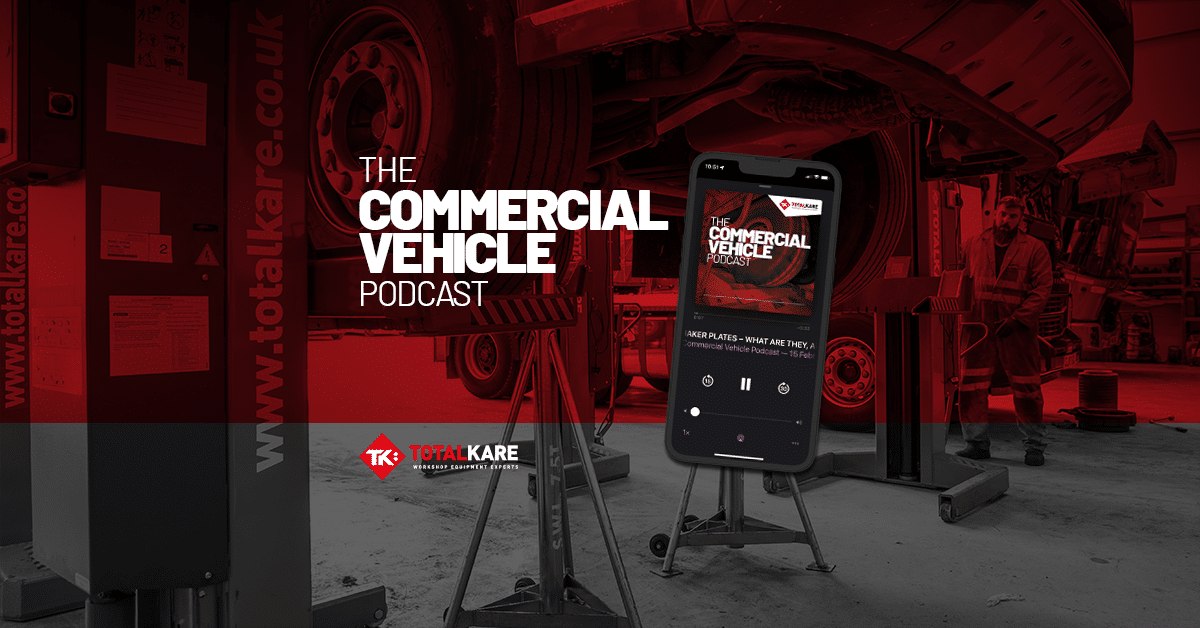The battery-electric Mercedes-Benz eCitaro will be available with up to 588kW/h of onboard energy capacity by the end of 2022, Daimler Buses has confirmed. It will be delivered using a third generation of NMC storage for the model in what the OEM describes as “an enormous increase” in that field.
A nominal 98kW/h modular battery pack will be deployed in multiples of four, five or six, with the latter delivering the headline-grabbing 588kW/h.
Daimler Buses says that fitment of the maximum number of battery packs will give the air-conditioned eCitaro a “reliable range” of 280km under average conditions throughout the service life of the energy storage units, although in favourable conditions that figure will be “well over 300km.”
Vehicle weight will not increase as a result of the development. Instead, improved cell chemistry and what Daimler Buses describes as “an optimised battery pack” have delivered a major rise in energy density. As a result, the passenger capacity of existing eCitaro versions will be maintained, which is as high as 85 in a standee layout.
The OEM says that the third generation of NMC batteries, produced by Akasol, will continue to be spread between the roof and what would otherwise be the engine bay. Akasol suggests that under “gentle” depot charging and subject to usage profile and depth of discharge, the third-generation batteries will have a life of 4,000 cycles, corresponding to up to 10 years’ use.
Up to 588kW/h means that the eCitaro will well suit longer routes, Daimler Buses says. It adds that the charging focus will be on plug-in up to 150kW, although optional pantograph-based opportunity replenishment will be offered at a maximum of 300kW.
The articulated eCitaro will be available with a maximum onboard energy storage of 686kW/h using seven packs of the third generation NMC batteries.
In addition to the above, from 2023 the eCitaro range will be offered with a Toyota 60kW hydrogen fuel cell range extender. It will couple to a maximum 294kW/h of battery capacity, or 392kW/h on the articulated eCitaro. That will grow the vehicle’s range to what Daimler Buses says will be 400km on the standard eCitaro and deliver “an all-electric hybrid” product.
Over 600 eCitaro buses are in service in Europe and the model accounted for almost half of the battery-electric bus market in Germany in 2021. A shorter eCitaro K is expected in 2024. Daimler Buses has also revealed that it will not progress eventual Euro VII diesel technology to the city bus segment, and instead intends to focus on CO2-neutral, zero-emission technologies.



























